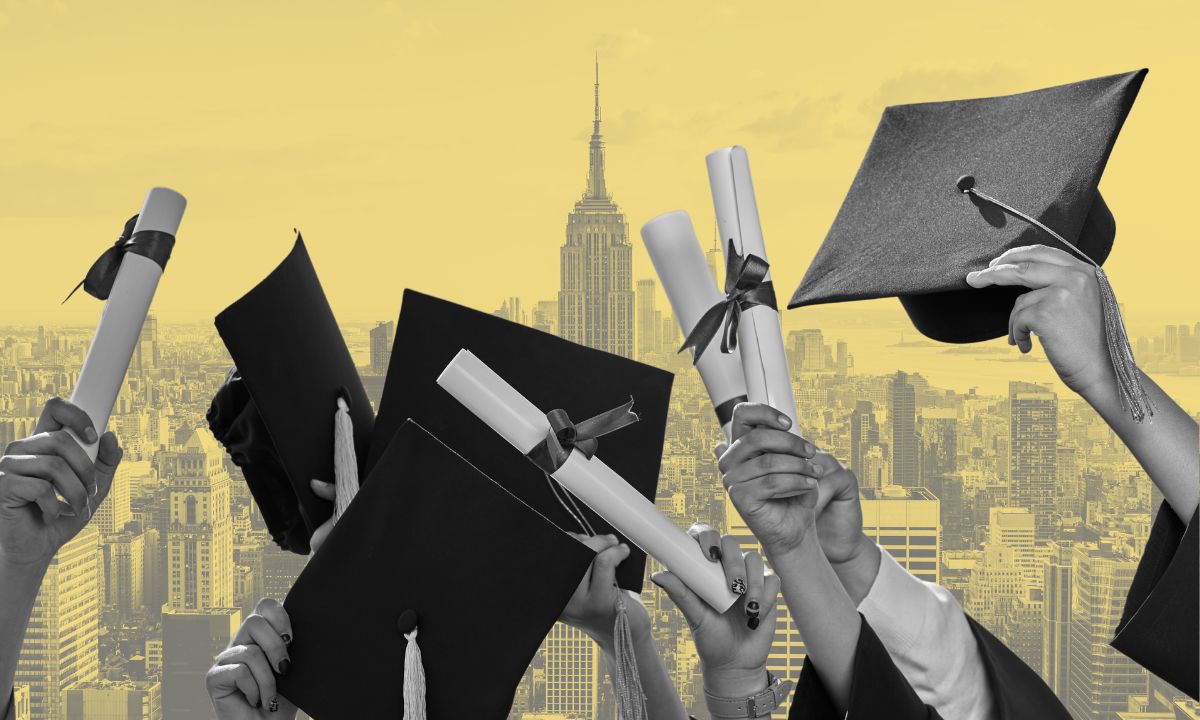Lessons Learned from 20-Plus Years of Public School Parent Advocacy
Adams: There's still so much to do to make education better. But families can't do it alone. Parent or not, everyone has a stake in the schools.

Get stories like this delivered straight to your inbox. Sign up for The 74 Newsletter
My third child graduated from her public high school on June 20, bringing to an end my over two decades of participation in the New York City educational system.
But I wasn’t just a passive observer. While my children were in public schools, I was also an advocate. Here are three things I learned after 20-plus years:
There is So, So Much to Advocate For
Because of my children, I’ve advocated for advanced academic opportunities for all students, especially those in underserved communities. Because of my children’s experiences, I realized that school cannot be one-size-fits all, and that there is more than one way to get the education you crave for your kids — even if it means abandoning the traditional system altogether. And, because of my children’s example, I learned that you can, in fact, fight City Hall — and win.
Thanks especially to my daughter, I became caught up in battles to transfer credits from school to school, to challenge and remove ineffectual teachers and, most recently, to fight for a school to stay true to its own principles.
Whatever issue you care about, somewhere in the public schools, someone is doing something to make it more difficult, even impossible. And those students, families, and teachers need your advocacy.
There Is No Quick Fix
My husband, a middle school teacher, warned me from the start, “Remember, anything you do to improve a school, you’re doing it for someone else’s kids, not yours. By the time any changes take place, your kids will be long gone.”
He was right. Despite parents advocating to follow Europe’s example and reopen schools that had been closed by COVID-19 as early as June 2020, New York City, and New York state overall, didn’t return to full in-person learning until September 2021. This decision led to what is now being called COVID’s lost generation — students who are struggling academically and socially, and many who have simply stopped showing up.
A similar, pandemic-influenced decision came when the city used COVID as an opportunity in 2020 to get rid of screens, which employed grades and test scores, for middle school admissions and severely weaken them for high schools. Affected families pushed back immediately, but it wasn’t until September 2022 when some districts were allowed to go back to minimal screening for the incoming September 2023 class. There are still fewer programs for advanced students than were available pre-pandemic.
Unfortunately, those parents who had campaigned against the initial rollback couldn’t take advantage of the subsequent, hard-won change, as their children had aged out of the affected grades. But they had made a difference for the next class of kids.
Parents Can’t Do It Alone
There is still so much to be done. Current issues in New York City range from the watering down of gifted-and-talented programs to the cutting back of sports to a mandate for smaller class sizes that requires the hiring of over 3,000 “high-quality, experienced” teachers out of thin air. It is also resulting in the loss of music and art rooms, as well as gyms, as schools scramble for new space to accommodate these smaller classes.
But — and here is the most important thing I’ve learned after 20-plus years of advocacy — public school parents alone can’t make a difference.
Enrollment in the NYC public school system is dropping precipitously, down to around 900,000 in 2024 from a high of 1.1 million pre-pandemic. That includes kids in universal 3K and 4K; take them out, and NYC in reality is down to around 800,000 students in kindergarten through 12th grade). But even when the kid count stood at over a million, that still wasn’t enough parental pressure to make a meaningful dent with NYC politicians.
On the other hand, there are over 13 million registered voters across the five boroughs. According to market researcher YouGov, nationally, during the 2024 election cycle, “Fewer than one in five voters choose education as one of their top three issues.”
That’s not a lot of voters to hold elected officials accountable. Which is why parents can’t be the only ones in this fight. They need help from those who think they have no skin in the game.
Everyone has skin in the game.
All citizens should care about education, because everyone has no choice but to live in a society of people who have been educated — for better or for worse. The goal is to make it better.
While the low number of voters who care about educational issues is the bad news, there’s also good news in how few voters turn out for non-presidential year elections, like the one scheduled for 2025.
This bad civic engagement improves the odds for those who do vote, because it makes every ballot count that much more. Which means those who have an interest in education can have an outsized impact on policy.
Still, again, parents can’t do it alone. They need allies. They need people who care about what’s best for all kids in NYC and across the country, not just their own. And who possess the patience to stick with it for the long haul, even after their children have graduated.
Get stories like these delivered straight to your inbox. Sign up for The 74 Newsletter

;)
